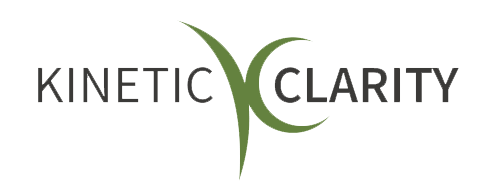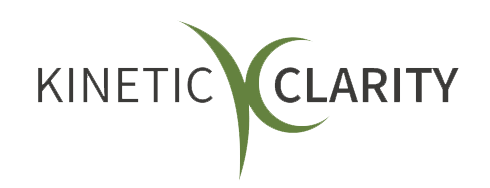Keeping HR at the Front to Contribute to a Successful Organization
How important is your HR team to your org's success?
Historically, it’s been easy for companies to overlook how critical the HR team is to their success. They aren’t big and flashy, bringing in all the company glory. However, it’s important to start supporting Human Resources departments better and giving them their due credit.
Don’t believe how vital they are? Try a month with a weak HR team, and you’ll realize how much they do to contribute to the organization’s success.
HR departments were universally shoved to the frontlines of every business at the beginning of the pandemic, only proving how essential they are for navigating a crisis. If they were able to negotiate your company through that mess, just think how amazing they are with everyday tasks. Now it’s time to keep your HR department front and center to maximize your company’s potential.
How HR Can Contribute to Your Company’s Growth
Business doesn’t only happen when you’re making deals and selling products. A lot happens behind the scenes, too, which affects the success of your organization. A business can’t be successful without an excellent system to make the company run smoothly. That’s where HR comes in; from the day an employee is hired to the day they collect their last paycheck, HR guides everything along the way.
Hiring Top Talent
Here’s a softball question for you: would you rather have a dedicated core group of employees or ones who are mediocre or (gasp!) bad? That question wasn’t fair; of course, you’ll pick the first option.
HR is responsible for making the right hiring decisions, which will set the business's productivity level. A company is only as strong as its weakest employee; HR is the gatekeeper. Their decisions influence the quality and quantity of the work a business gets done.
Finding and hiring decent employees is not a simple process. One-third of HR employees say that recruiting and hiring talent is the most challenging part of their job. There can be a lot of candidates to sift through, and they have the difficult chore of narrowing it down and finding the best fit for the role and the company—the better the hire, the stronger the organization.
Engage Employees
As a business leader, you understand the importance of having a workforce that feels a commitment and involvement with their work and the broader organization. It’s good business practice to have your employees feeling engaged; they will bring their best work to the table when they are. Sadly, only 36% of employees report such engagement with their employers, according to a Gallup poll.
When employees are checked out, what do they care if they’re doing their best, most efficient work for the company? As long as the job gets done, they figure it’s enough. This hurts the bottom line.
HR can draw employees in and enhance their experience at work and the broader organization, leading to a more dedicated team of employees. In addition, this engagement will lead to your workers applying themselves to their work and to the company.
Human resource teams are also responsible for keeping their ear to the ground so they know what the employees want and expect. As a result, they are in a position to see that wants and needs are being met, further encouraging engagement.
Create A Positive Culture
HR is responsible for setting the tone within the organization. This refers to the company environment, essentially the entire outlook on how things get done within the business.
It seems evident that a positive atmosphere is vital for employee satisfaction, engagement, and even focus and efficiency. But not all companies care about setting the right tone; they expect maximum efficiency and output while giving their staff very little back.
The company culture needs to be a concerted effort, set by design. And, of course, that falls under HR’s domain. This covers everything from policy to behavior to amenities and benefits. So HR is in the position to see that when one approach isn’t working or landing well among the employees, it’s time to change it or risk creating an unhealthy culture around the office.
Positive work culture plays a role in how employees and leadership relate to each other and the overall organization. It helps to ensure employee expectations and company needs are aligned. When it’s positive, interactions are also positive. Conversely, an antagonistic culture can lead to toxicity and stress in the workplace.
Word gets out, too, about your organization’s work culture. Whether good or bad, the public will know about it from employees or former employees; this contributes to the company’s reputation with their customers and affects who applies for future openings.
Training New Hires and Developing Current Ones
HR oversees the onboarding process for every new employee. When their training is done well, the new talent will likely have a positive outlook on their role and the broader company. In addition, they will have a better experience starting in their position and are more likely to feel loyalty to the organization since they feel fully supported.
HR is responsible for ensuring that a well-rounded training and onboarding process occurs. They also monitor the process to ensure that it’s effective and thorough. They also check to make sure the training time is cost-efficient.
However, an employee’s relationship with HR doesn’t end once training does. HR maintains a link with the employee throughout their time working for the company. They track each employee’s performance to understand their strong areas and ensure they’re in the proper role for their talents. Then they identify future leaders for the organization and provide business development opportunities.
Examining Compensation and Benefits
HR stays on top of salary trends within the industry. They know what is considered competitive for each role and when adjustments are needed. They are also responsible for ensuring that the company’s benefits package is worthwhile. Insufficient compensation and benefits are a reason for looking for another job with a different company, according to 52 percent of respondents to one poll.
Yet, it isn’t just about offering the right benefits, though. HR evaluates the feasibility of specific benefits packages. They’ll find the best financial arrangement for the organization while providing the best benefits to the employees.
Respect Your HR
Businesses lean on HR for so much company housekeeping that sometimes we forget that they are capable of so much more than that. Your organization can shine much brighter when HR is allowed to have a seat at the table more often. They just might even make your life a lot easier.
Top HR Risk Factors for 2022
Learning how top HR experts are protecting their Human Capital













